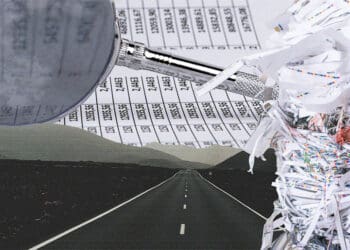Investment banks are increasingly concerned about corruption liability arising from issuers for which they structure and execute capital market transactions. Underwriters in Asian transactions demand, as a precondition to a securities offering, that issuers certify their compliance with the U.S. Foreign Corrupt Practices Act (FCPA). This is the case whether or not the transaction is registered with the U.S. Securities and Exchange Commission (SEC) or if the underwriter acts as the initial purchaser in an exempt transaction. Their concern arises even if the Asian issuer is not subject to the FCPA’s jurisdiction. This article explains why, despite the above, the FCPA matters in these transactions.
Who is covered by the FCPA?
Liability under the FCPA arises when a party offers, promises or authorizes a payment of money or anything of value to a government official (non-U.S.) with the purpose of securing any improper advantage in order to obtain or retain business.
The FCPA applies to (1) companies listed on U.S. stock exchanges or that are required to file periodic reports with the SEC[1], (2) U.S. citizens (wherever located) or any business entity incorporated in the United States and (3) anyone acting in furtherance of bribery while in the United States.
FCPA Liability in Rule 144A and Regulation S offerings
There are two broad categories of securities offerings: (1) offerings of securities registered with the SEC; and (2) unregistered offerings of securities in reliance on a number of exemptions, including Rule 144A under the U.S. Securities Act (Rule 144A) or Regulation S under the U.S. Securities Act (Regulation S). Companies offering registered securities would fall under the FCPA’s jurisdiction as they are either publicly listed or file reports with the SEC.
In contrast, companies that offer unregistered securities, if not otherwise listed on a U.S. securities exchange or required to file SEC reports, will not be covered by the FCPA. Most of the unregistered offerings in Asia made in reliance on Rule 144A and Regulation S are by Asian companies that have only limited potential liability under the FCPA as they are not listed, do not employ U.S. persons and do not operate in the United States.
Not surprisingly, therefore, the Asian company issuers in unregistered offerings question why underwriters require them to certify compliance with a U.S. regulation that may not apply to them at all or only apply in limited circumstances.
The answer is simple: given the increased enforcement activity by U.S. regulatory authorities and the jurisdictional reach of the FCPA, even if an Asian issuer’s risk of FCPA liability is limited, it is a risk that underwriters are not willing to take.
This is because underwriters in Rule 144A and Regulation S transactions often clearly do fall within the FCPA’s jurisdiction. If an underwriter is incorporated in the United States or is required to file reports with the SEC, it can be liable for FCPA violations. Recently, a number of U.S. investment banks have been investigated by the SEC and U.S. Department of Justice for alleged FCPA violations.
Underwriter Liability in Unregistered Offerings
The liability that causes underwriters to demand certifications does not stem from the offering itself, but rather arises from the failure by the Asian issuer to disclose to potential shareholders any material potential or actual FCPA violation, often referred to as 10b-5 liability.
Rule 10b-5 of the U.S. Exchange Act broadly prohibits “untrue statements of material fact or material omissions” in offering documents. Liability can be avoided if the underwriter can show that there were reasonable grounds to believe that there were no misstatements or omissions of material facts in the offering document. This is the basis for the underwriters’ “due diligence” defense.
Aside from avoiding Rule 10b-5 liability, there are reputational risks underwriters face in securities offerings. If following an IPO, the newly listed entity is accused of or prosecuted for a violation of the FCPA or other applicable anti-bribery laws, the underwriters involved in that IPO could be easy targets – if not in a court, then by the media.
In an effort to limit liability risk and strengthen their due diligence defense, underwriters require issuers to (1) disclose during due diligence any acts committed in violation of the FCPA and other applicable anti-bribery laws and (2) certify their compliance with these anti-corruption regimes in the representations and warranties (reps) of the underwriting agreement or purchase agreement for Rule 144A and Regulation S transactions.
Diligence
For securities offerings, the typical FCPA diligence generally involves a call with the issuer’s management to ask basic anti-corruption questions. To tailor the diligence questionnaire, underwriters may assess the risk of bribery, including factors such as where the issuer operates geographically and in which industry. However, to be more certain, underwriters may consider expanding these questions to include a review of any existing anti-corruption compliance program[2] and an analysis of relevant supporting documents. Underwriters are aware that the more diligence conducted, the stronger their due diligence defense becomes.
Representations and Warranties
Reps in underwriting agreements are meant to allocate risk between the parties and focus the underwriters’ due diligence efforts. The key is to strike a balance between the diligence that can be conducted by the underwriter and the reps that can be requested of the issuer. It is in this context that underwriters require issuers to represent in the underwriting agreement that they have been in compliance with the FCPA and other applicable anti-bribery laws.
Underwriters seek to get a rep from the issuer that it is in compliance with the FCPA and applicable anti-bribery laws even if the FCPA is not applicable to that company, because underwriters want to determine whether the issuer operates as if the FCPA were applicable. Issuers, on the other hand, aim to represent their compliance only insofar as the anti-bribery laws are applicable to them.
The parties will also negotiate the degree of knowledge required of the issuer with respect to its compliance, a term commonly referred to as the “knowledge qualifier.” Underwriters generally push for a “clean rep,” wherein the issuer certifies compliance with certain anti-bribery laws regardless of whether it had actual knowledge of such compliance. In contrast, issuers will want to limit the extent of knowledge and inquiry required of them. In determining whether a knowledge qualifier is adequate, parties should consider (1) the extent of diligence conducted by the underwriters on the issuer’s anti-corruption program, (2) the quality of the issuer’s anti-corruption program, (3) the risk of non-compliance by the issuer and (4) the history of the issuer’s compliance.
Conclusion
We expect that underwriters in non-registered offerings in Asia will continue to require issuers to certify their compliance with the FCPA and may consider expanding their due diligence with respect to anti-bribery policies. Further, as U.S. enforcement authorities increase their FCPA jurisdictional reach, underwriters will increasingly require issuers to back up their FCPA compliance rep with more detailed facts.
[1] In addition, these companies will be liable under the FCPA if they fail to maintain accurate books and records and reasonable internal accounting controls that accurately reflect all transactions.
[2] To be effective, a compliance program should include appointment of a corporate compliance officer, a written anti-corruption policy, training and anti-corruption compliance provisions in contractual agreements with third parties and customers/suppliers.



 Wendy L. Wysong is a partner at
Wendy L. Wysong is a partner at 









